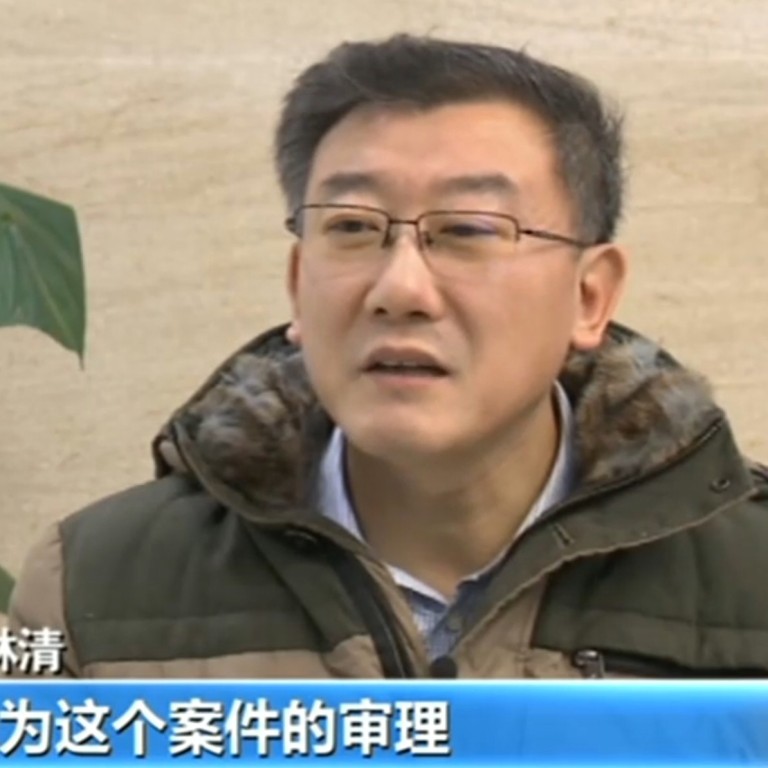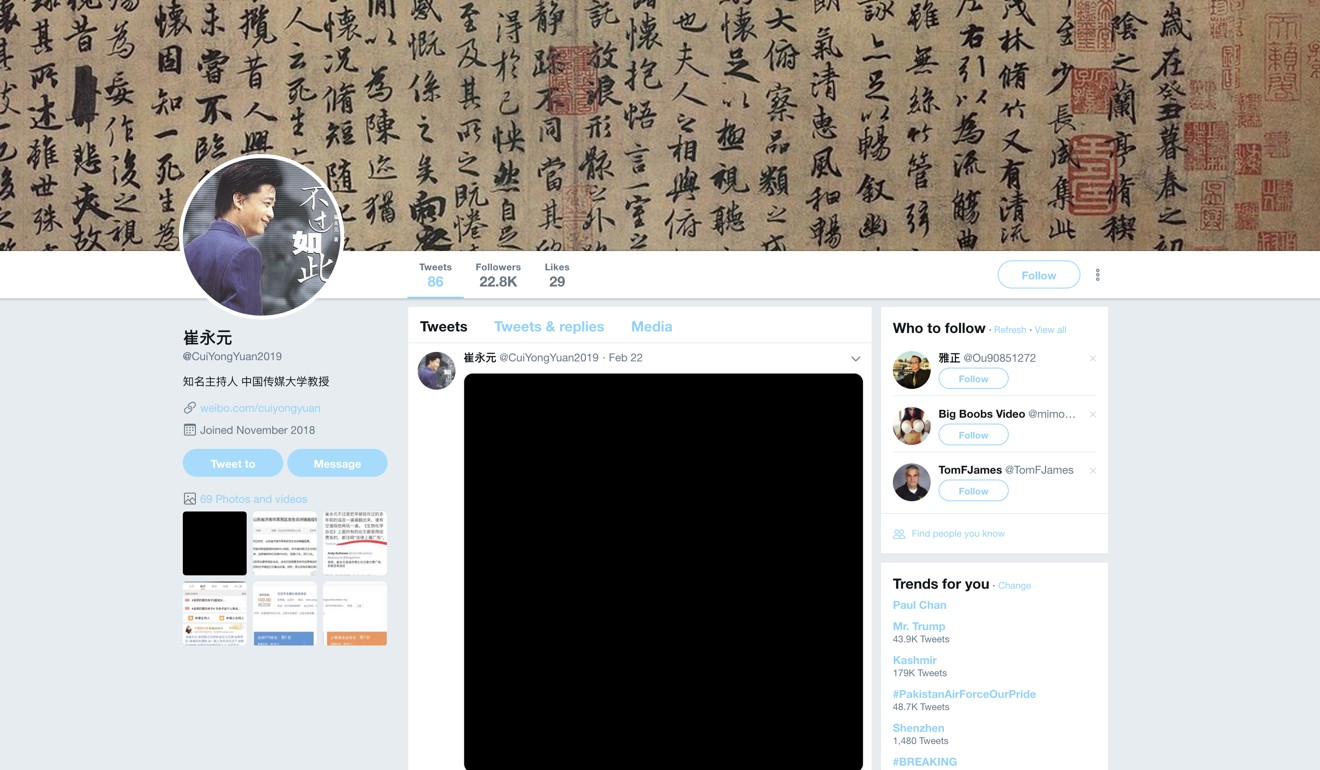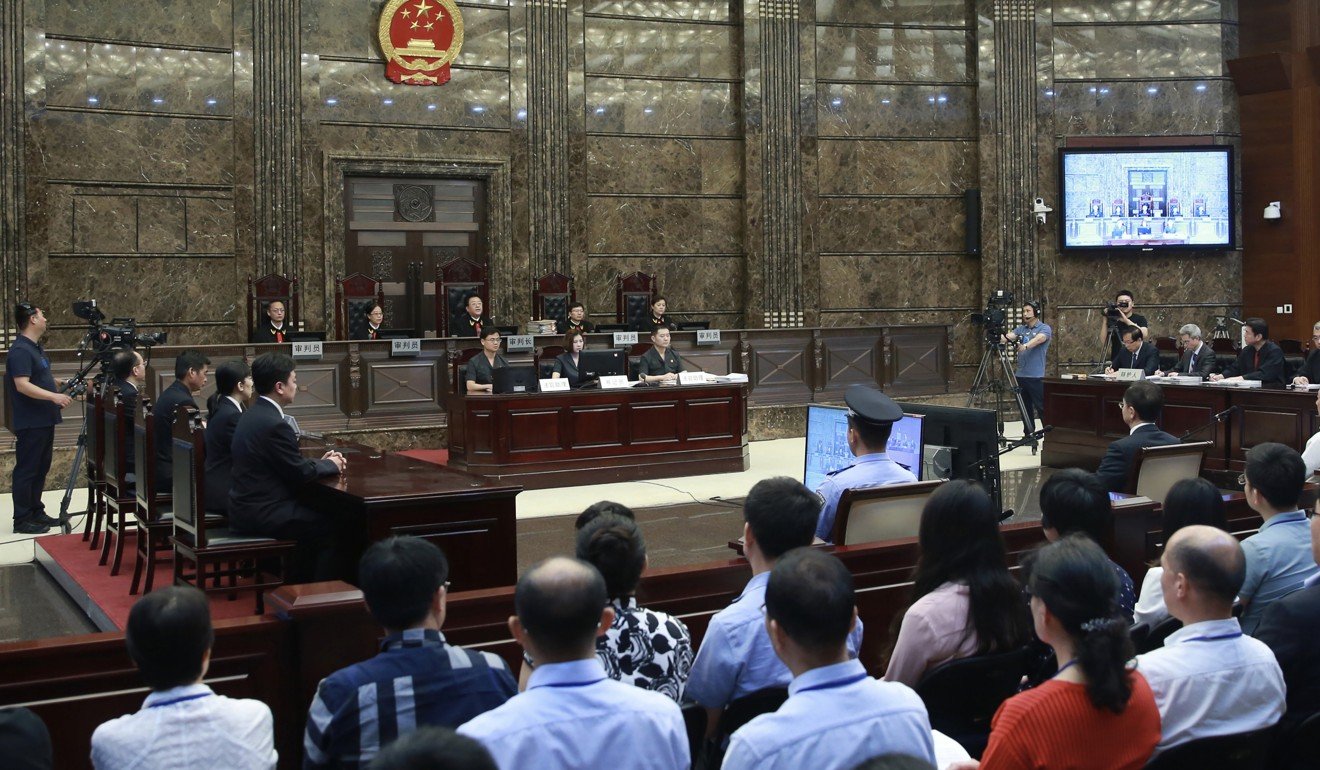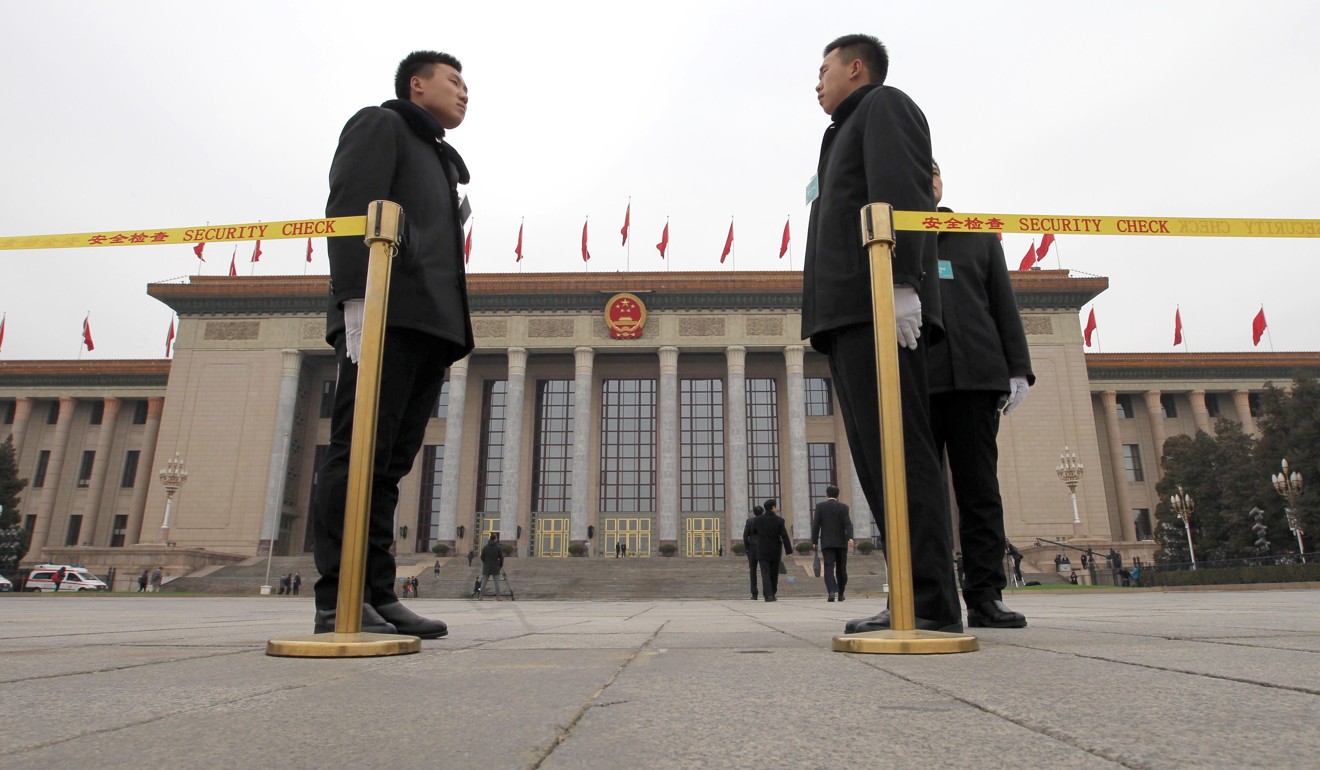
Chinese law books written by judge behind stolen court papers scandal recalled by publisher
- Wang Linqing’s works taken off shelves and returned to warehouses
- Beijing lawyer who followed case said move was a step ‘too far’
Law books written by a Chinese judge were removed from shelves after he made a surprise televised confession about his part in a scandal at the country’s highest court that he helped bring to light.
More than 10 books written by Wang Linqing, a former assistant judge to the Supreme People’s Court, were recalled by his publisher on Friday, employees at the company and bookstores said.

Wang, who helped to expose the loss of court documents in a long-running contract dispute case in December, made his first public appearance in more than a month on state television on Friday.
To the surprise of many, the 45-year-old claimed he took court papers home out of spite after he was told that he would no longer be handling the case.
“I took them away partly to vent my anger, and partly to stop other [judges] from handling the case,” he said on CCTV.
The papers, which vanished in late 2016, detailed a mine ownership dispute between private firm Kechley Energy Investment, headed by Zhao Faqi, and the state-owned Xian Institute of Geological and Mineral Exploration.
Wang’s admission was aired along with other findings by a high-level investigation that looked into the disappearance of the documents, an effort led by the Communist Party’s Central Political and Legal Affairs Commission in co-operation with anti-corruption investigators, prosecutors and police.
But the result failed to convince many people who wondered why Wang would risk blowing the whistle on his misdeeds.
On WeChat, China’s most popular social media app, articles that questioned the validity of the investigation were censored.

Wang is now under police investigation for “illegally obtaining and deliberately leaking state secrets”, and his published work is out of reach.
“All the books by Wang Linqing were recalled on Friday. This is an order from the [company] bosses and no distributor anywhere is allowed to sell them,” said an employee with Beijing-based Law Press China, Wang’s publisher.
At Beijing No 1 Law Bookstore, all books by Wang were returned to a warehouse, an employee said. “We cannot sell these books any more. If we do, there will be a political problem.”
In Shanghai, a store run by China Law Book, the largest distributor of such materials in China, also said Wang’s works were recalled.
According to a Law Press China notice, 11 books written by Wang, a judge with two decades of experience in civil and commercial adjudication, have gone. These included his work on personal obligation disputes, housing transactions, labour relations and construction projects.
“This is going too far,” said Liu Xiaoyuan, a Beijing-based human rights lawyer who has been vocal about the case on social media.
“Wang has not been convicted of any crimes. Even if he was, his professional books have nothing to do with his moral conduct or offences. There is no need to censor his books as long as the content is not problematic from a professional perspective,” he said.

Liu said public scepticism over the findings was exacerbated by Wang’s televised confession made at a time, Liu said, when Wang was constrained by authorities and people could not tell if the judge was speaking freely.
Televised “confessions” involving journalists, human rights lawyers, campaigners and celebrities in high-profile matters have become increasingly common during Chinese President Xi Jinping’s rule.
Some lawyers used social media to say there was something ironic about a Supreme Court judge confessing to his part in a scandal on television before he was even tried, especially after Xi’s repeated pledges to “rule the country according to law”.
Wang’s confession raised questions about the silence of Cui Yongyuan, a former television host who broke the story of the missing court documents.
Cui was named in the investigation as helping Wang record, edit and publish his whistleblowing videos, as well as posting photos online of court documents that Wang had obtained illegally which were said to have contained “state secrets”.
Cui, who has a following of more than 20 million fans on microblogging site Weibo, made his name as the country’s most effective whistleblower after exposing actress Fan Bingbing’s tax evasion last year.
Cui’s Weibo account has been idle since Friday morning and followers left comments inquiring after his safety.
On Twitter, which is blocked in China, Cui posted his last tweet soon after midnight on Friday: a solid slab of black or – as many commenters interpreted it – darkness.

